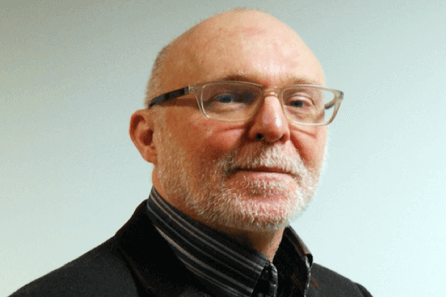Sensory Integration Education Honorary Fellowship Award
By Sensory Integration Education, 1 January 2020

At the Sensory Integration Education Autumn Conference in November 2019, Dr. Greg Kelly was awarded an Honorary Fellowship of Sensory Integration Education in recognition of his “significant and sustained contribution to the organisation”. He tells us what this award means to him.
I was honoured to be recognised by my peers and to join the fellowship of luminaries such as Elizabeth Fairgrieve, Elizabeth Stephenson and Valerie Cribbin. To be honest, I didn’t feel that I deserved the award. I was delighted, on the day, to see Jenny French in the audience because she reminded me of the shared history that we, and the other honorary fellows, have in promoting sensory integration in the UK and Ireland. It is hard to believe that it is almost 40 years since I started working as a paediatric occupational therapist in Cherryville Speech and Language Assessment Unit in Belfast. It was a new post, the first of its kind, and I didn’t have a clue what I was supposed to do. For the first year or so, I was guided by the speech and language therapists and anything I could read on occupational therapy for perceptual and motor difficulties in children but I couldn’t help thinking there was something missing. Then, one day, I read a new article by Ayres and Mailloux on the influence of sensory integration (SI) procedures on language development and realised that this is what I had been looking for. My speech and language therapy colleagues were initially sceptical about the idea of experimenting with SI therapy, but after a year of trial and error practicing with hand-made equipment we had some amazing results.
I realised I needed further training but there was nothing available locally at that time and so I started a small study group in Belfast with other occupational therapists, including Eadaoin Breathnach, who has since gone on to make quite a name for herself with her innovative neuro-behavioural approach-Sensory Attachment Intervention (SAI). This little study group later became affiliated with the Scottish-based study group on perception led by Elizabeth Fairgrieve and Elizabeth Stephenson and the Sensory Integration Association (UK) led by Jenny French – a physiotherapist - and the Irish Sensory Integration Association led by Valerie Cribbin. I took every opportunity I could to attend every SI course or workshop I could find throughout the UK and beyond, even travelling to Amsterdam to catch some American experts on a European tour.
I organised the first ever SI courses held in Northern Ireland including a 3-day multidisciplinary Sensory Integration course (COT & CSP validated) which was run by Jenny French. This proved to be controversial as there were certain local occupational therapists who believed that SI should be exclusive to occupational therapists. Ironically, in the early years, I often met with active resistance from my occupational therapy colleagues when I attempted to promote SI.
However, my personal experience has always been that SI has been enriched through the collaboration of occupational therapists, speech and language therapists, and physiotherapists and, had it not been for the support and encouragement I received from my colleagues in Cherryville Clinic many years ago, I would not have been able to develop SI in Northern Ireland. Nor, indeed, would we have developed the SI programme at Ulster University without the vision and leadership of my speech and language therapy colleague, Rosalind Rogers.
When I began my PhD, I had to set aside my involvement with SI but a meeting in 2010 with Valerie Cribbin, a founding member of the SI Network, changed everything. She told me the SI Network had invited higher education institutions in the UK to tender for accreditation of their SI course and she encouraged me to submit a bid. The SI Network had a partnership agreement with Cardiff University and, previously, with the University of Liverpool.
I led a team to submit a bid that proposed that completion of the modules would lead not only to the award of a Postgraduate Certificate in SI but also to a Postgraduate Diploma and Masters in SI. The bid was successful and the existing programme was validated in April 2011 with the first intake in September 2012. I have been the Course Director ever since and steered the programme through two successful revalidations. Perhaps I do deserve the award after all!

